Long-seller Products in Japan
CONTENTS
Beloved by Japanese Consumers for a Long Time
Each December in Japan, the previous year’s most popular and successful examples consumer marketing are introduced as hitto shohin (“hit products”) in the Nikkei Ryutsu Shimbun (Nikkei Marketing Journal) and other media. While it’s great publicity to have one’s company credited with having generated a new hit product, some hits turn out to be short-term fads that soon and vanish from the scene. It is far more difficult for any manufacturer to achieve long-term brand loyalty that continues for decades. Such goods are said to have attained the status of choju shohin, literally “longevity products.”
What made them popular in the first place? And what sustained their popularity? Certainly quality and reliability play a major part in realizing customer loyalty and trust, but there are intangible factors at work.
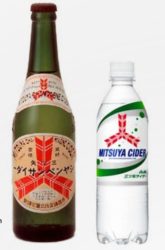
Recently the Asahi Shimbun newspaper introduced eight of these “longevity products” beloved by Japan’s consumers, which continue to thrive today. Many hold a dominant share in their segment of the market, and the companies have diversified into other product areas. The oldest, Fukusuke tabi from Tokyo-based Fukusuke Corporation, branched out from tabi (traditional Japanese socks) and is now an all-round producer of apparel. Founded as a shop in Sakai City, Osaka Prefecture in 1882, Fukusuke is still going strong at the venerable age of 131.
Mitsuya Cider
Mitsuya Cider (founded in 1884), not apple cider but a carbonated soft drink, does not claim to be the first of its kind in Japan, but has the longest unbroken history. It achieved national popularity in the 1890s when it was designated a supplier to the Imperial Household. After a series of corporate mergers and reorganizations the brand was taken over from 1988 by Asahi Soft Drinks Co., Ltd.
Yebisu Beer
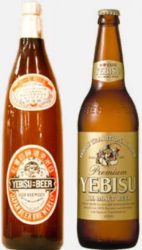
Yebisu Beer (founded 1890) was named after the neighborhood in Tokyo where it was first produced. The name is also associated with Yebisu, a mythological god of fishermen, luck and workingmen, as well as guardian of the health of small children. Among the Shichifukujin (seven lucky gods of Japan) Yebisu is famous for his rotund shape and jolly disposition. The brand of beer was dormant from 1945 but revived by the Sapporo Brewery in 1971. Regarded as a premium label, it presently commands almost 12% of the domestic beer market.
Jintan
Jintan (founded 1908), sold by Morishita Jintan Co., Ltd. of Osaka, is today purchased for use as a breath freshener only, but was once regarded as a pick-me-up with medicinal properties. The silver pellets’ ingredients include cinnamon, mint, cumin, clove and Fructus Amomi. Jintan is written with the characters jin (benevolence) with tan (medicine), an ingredient in traditional herbal remedies said to promote longevity and health.
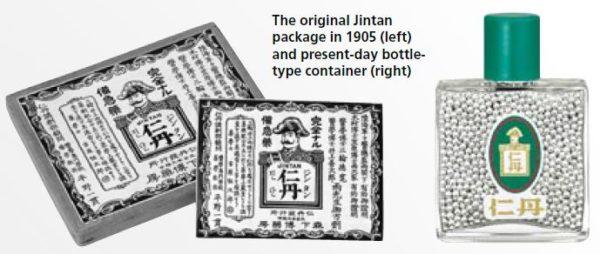
Morinaga Milk Caramels and Lion Toothpaste for Children
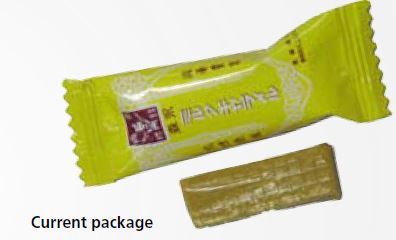
This year Morinaga Milk Caramels and Lion toothpaste for Children both observe the 108th anniversary of their launch. The former can be found for sale at rail station kiosks and convenience stores from one end of Japan to the other. The latter continues to promote good dental hygiene among children from a young age. It is currently sold in tubes decorated with cute anime mascots in strawberry and melon flavors.

Calpis
Calpis (founded 1919) is a popular beverage made with fermented lactic acid. The company’s founder, Kaiun Mishima (1878-1974), coined the name from “calcium” and sarpis, Sanskrit for “butter taste.” The drink was said to have been inspired by the Mongolian beverage airag, made from fermented mare’s milk.
Kewpie Mayonnaise
Kewpie (Q.P.) mayonnaise (founded 1925) is the most popular brand of Japanese mayonnaise, advertised with a Kewpie doll logo. It is made with egg yolks instead of whole eggs, and rather unique in that it can be consumed not only with salads and Western-style foods but also with Japanese dishes, such as yaki-surume (grilled cuttlefish) and other seafoods, and even on pizzas.
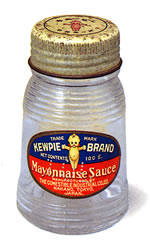
Original 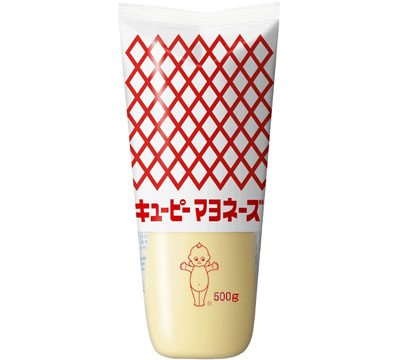
Current


